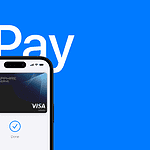Finding the right phone service for your business can be tough. Many options exist, from basic systems to fancy ones with lots of tools. The best IP phone services offer clear calls, easy setup, and good prices that fit what small or large companies need.
These modern phone systems work through the internet instead of old phone lines. They’re often cheaper and have more features than old phone systems. Most top services let you make calls from desk phones, computers, or cell phones so you can stay in touch from anywhere.
1. RingCentral RingEX
RingCentral RingEX stands out as a top choice for businesses seeking reliable VoIP phone services in 2024. This solution (formerly known as RingCentral MVP) combines voice, video, and chat features in one unified platform.
Companies looking to avoid expensive on-premises systems find RingEX particularly appealing. The service delivers high-quality calls with 99.999% uptime across 46 countries, making it dependable for global operations.
Small and large businesses alike benefit from RingEX’s advanced capabilities. The system offers more than just basic calling features—it provides a complete communications solution that helps teams stay connected.
Security matters with phone systems, and RingEX doesn’t disappoint. The service comes backed by top security certifications to protect business communications.
Modern companies need phone services that work over the internet without compromising quality. RingEX delivers this through its comprehensive VoIP system that adapts to various business needs.
The platform serves as a futureproof communications solution that grows with your business. Users can access all the calling features they need plus additional tools that enhance productivity.
For businesses comparing VoIP providers, RingEX consistently ranks among the best business VoIP services. Its reliability and feature set make it suitable for companies of all sizes.
The transition from traditional phone systems to RingEX happens smoothly. Businesses can quickly implement the service without extensive technical knowledge or equipment upgrades.
Customer support comes standard with RingEX, helping companies address any issues that arise. This support proves valuable for businesses that cannot afford downtime in their communication systems.
2. Intermedia Unite
Intermedia Unite stands out as a top choice for businesses seeking a complete communication solution. This service combines unified communications software with robust phone systems to help teams work better together.
Companies can benefit from the mix of phone services and video conferencing tools in one package. The system works well for both small teams and larger organizations that need to stay connected.
Intermedia Unite offers strong call routing features that help businesses manage incoming calls efficiently. These features make sure customers reach the right person quickly, which can improve customer service.
The PBX phone system includes many advanced options that traditional phone services might not have. Users can transfer calls, set up conference calls, and manage voicemail with ease.
One big plus is that Intermedia Unite works with different types of phones. Businesses can choose from a range of UC phone systems based on their needs and budget.
The pricing structure is competitive when compared to other business phone services. Companies can select from different pricing plans based on the features they need.
Teams that use Intermedia Unite can also enjoy video conferencing tools as part of the package. This makes it easier to hold virtual meetings without needing separate software.
Mobile workers will appreciate the ability to make and receive calls using their business number on their cell phones. This keeps work and personal calls separate even when using one device.
Customer support is available to help with any issues that might come up. This can be important for businesses that rely heavily on their phone systems for daily operations.
The system can grow with a business over time. Companies can add lines and features as they expand without needing to switch to a new service provider.
3. Vonage Business Communications
Vonage Business Communications offers a complete VoIP phone service that helps small businesses improve their communications. The system starts at just $13.99 per month, making it an affordable option for companies watching their budget.
This service includes several useful features that make handling calls easier. With Call Queueing and Auto Attendant, businesses can manage high call volumes without missing important customer calls.
Vonage provides flexible and scalable voice capabilities that grow with your business. You won’t need to worry about replacing your system as your company expands.
The platform goes beyond just phone service. It includes messaging, video, and data features that create a complete unified communications system.
Small business owners appreciate how easy Vonage makes it to get started. Companies can view plans online, schedule a conversation with a representative, or simply call to speak with a VoIP specialist.
Vonage Business Communications serves as a capable communications platform with reliable VoIP features. It also includes a good set of video conferencing tools for remote meetings.
For businesses looking to upgrade their phone system, Vonage offers solutions that work well for various company sizes. Their business phone systems can be customized to fit specific needs.
The service helps businesses sound more professional with features like custom greetings and menu options. This creates a better first impression for callers.
Users can access the system from multiple devices including desk phones, computers, or mobile phones. This flexibility lets employees stay connected wherever they work.
Vonage’s small business VoIP solutions provide the reliability and features that growing companies need. The system works over internet connections, eliminating the need for traditional phone lines.
4. 8×8 Work
8×8 Work stands out as a reliable VoIP service for businesses seeking quality communication tools. The platform offers exceptional call and video quality with an interface that’s easy to navigate.
Users praise the system for its dependability. According to reviews, the softphone apps work well across multiple devices including macOS, Windows, and iOS. This makes it convenient for teams who use different operating systems.
The 8×8 platform brings together business communications and interaction data in one place. This integration helps companies connect their teams and customers more effectively while gaining better insights from their communications.
For businesses with international needs, 8×8 offers attractive features. Their plans include unlimited international calling to many countries, which can save money for companies with global operations.
Security is another strong point of the service. The 8×8 business phone system lets users access critical information securely from anywhere. This feature proves valuable for remote teams or employees who travel frequently.
The service uses a mix-and-match approach with their plans. This flexibility allows businesses to select only the features they need, potentially reducing costs compared to all-inclusive packages from other providers.
8×8 Work supports team connectivity across various channels. The system links voice, video, and messaging in one platform, streamlining communications and reducing the need for multiple separate tools.
Global support comes standard with the service. This proves helpful for companies with international offices or customers in different time zones who need assistance outside regular business hours.
The platform’s design focuses on integration. Rather than operating as standalone software, 8×8 Work connects with other business systems to create a more unified workflow for users.
5. Dialpad
Dialpad offers a robust VoIP phone service that combines calling, video meetings, and messaging in one platform. This all-in-one solution helps businesses streamline their communication needs without juggling multiple apps.
What sets Dialpad apart is its AI technology. The system includes smart features that can transcribe calls, analyze conversations, and provide helpful insights for your team.
Pricing for small businesses starts at just $15 per user per month. This makes it a competitive option compared to other services like Vonage and Ooma, while still offering premium features.
The cloud VoIP phone service lets users make and receive calls from anywhere. You can also send SMS messages and set up meetings through the same interface.
For companies looking for a complete system, Dialpad’s business VoIP phone system provides a range of tools designed to improve team communications. Their platform has earned recognition too – it’s rated #1 on G2 for VoIP systems.
Small businesses will find Dialpad particularly useful. Their small business features include easy setup and management tools that don’t require technical expertise.
The platform works across devices including desk phones, computers, and mobile phones. This flexibility allows team members to stay connected whether they’re in the office or working remotely.
Customer support is available to help with any issues that arise. This can be especially valuable for smaller companies without dedicated IT staff.
Unlike some complex enterprise systems, Dialpad focuses on user-friendly design. The interface is clean and most features can be accessed with minimal clicks.
Call quality remains consistent even with varying internet speeds. This reliability helps ensure professional communications with clients and team members alike.
6. Microsoft Teams Phone
Microsoft Teams Phone is a voice calling solution that works with Microsoft Teams. It lets businesses make and receive calls directly within the Teams app.
Teams Phone removes the need for separate phone systems. You can use it on computers, mobile devices, or with special Teams-certified desk phones.
The service uses VoIP (Voice over Internet Protocol) technology. This means calls travel over the internet instead of traditional phone lines.
Many businesses choose Teams Phone because their staff already use Teams for chats and meetings. Adding calling features creates a single workspace for all communications.
Teams Phone works with certified VoIP phones from various manufacturers. These phones have screens and controls designed specifically for the Teams experience.
The service includes standard features like call transfer, forwarding, and voicemail. It also offers advanced options like auto-attendants and call queues for business needs.
Companies can connect Teams Phone to their existing phone systems through direct routing. This option lets them keep their current phone provider while using Teams for calls.
Some MSPs (Managed Service Providers) recommend direct routing integrations like Teammates for the best experience. This information comes from discussions among IT professionals.
Teams Phone can handle video calls and teleconferencing too. These features help teams connect face-to-face when they can’t meet in person.
For businesses already invested in Microsoft’s ecosystem, Teams Phone provides a natural extension. It integrates with Outlook calendars, contacts, and other Microsoft 365 apps.
Setup and management happen through the Microsoft admin center. This gives IT teams a central place to control settings and permissions.
Pricing works on a per-user basis with different plans available. Some businesses may need additional licenses for certain features.
Call quality depends on your internet connection. Companies should ensure they have enough bandwidth for clear calls.
7. Nextiva
Nextiva stands out as a top-rated VoIP phone service trusted by over 100,000 brands. Their business phone solutions start at $18.95 per month, making them affordable for many companies.
With Nextiva, businesses get unlimited nationwide calling, text messaging, conference calls, and team chat features. These tools help teams stay connected no matter where they work.
Over a million people use Nextiva’s services, showing their strong market presence. U.S. News has rated Nextiva as the best VoIP phone system for businesses, backed by thousands of verified customer reviews.
Small businesses find Nextiva especially helpful. They offer dedicated small business VoIP solutions with plans starting at $30 per month. These plans include the features small teams need without extra complexity.
Nextiva works with top phone brands to give customers quality hardware options. They sell VoIP desk phones from Poly, Panasonic, and Cisco. All these phones come with HD voice features for clear calls.
Their customer service gets special attention in marketing materials. Nextiva refers to their support as “Amazing Service,” suggesting they put extra effort into helping customers solve problems quickly.
While Nextiva works well for many businesses, some users note it may not be the cheapest option. According to Reddit discussions, Nextiva along with RingCentral and 8×8 can be “a little overcomplicated” for the smallest businesses.
For medium to large companies needing robust features, Nextiva provides a complete communication platform. They combine voice, video, and messaging in one system to simplify team collaboration.
The company focuses on reliability with their cloud-based system. This helps businesses avoid missed calls and stay connected during important customer interactions.
8. Ooma Office
Ooma Office stands out as a top choice for business VoIP phone services. For ten consecutive years, PC Magazine readers have ranked Ooma Office as the best business VoIP phone service.
The system works with many phone types, including traditional analog phones, IP phones, and both desktop and mobile apps. This flexibility helps businesses use their existing equipment while upgrading their phone service.
Small businesses particularly benefit from Ooma’s offerings. Their small business phone systems include over 50 features at an affordable price point. These features come standard without extra costs that other providers might charge.
Call quality remains clear and consistent with Ooma. Businesses can expect reliable connections for important customer calls, which helps maintain professional relationships.
For companies just starting out, the Ooma 2602 IP Phone offers a good entry point. This two-line phone supports five-way voice conferencing and works well for new or small businesses with basic phone needs.
Setup requires minimal technical knowledge. Most businesses can get their phone system running quickly without hiring outside IT help.
Pricing remains transparent with no hidden fees. Companies can budget accurately for their phone service without worrying about surprise charges on monthly bills.
Customer support comes included with all plans. When technical issues arise, help is readily available to keep business communications running smoothly.
Mobile capabilities allow team members to make and receive calls using the business number even when away from their desks. This feature proves especially valuable for remote or hybrid work arrangements.
Security features protect business conversations from potential eavesdropping. This added layer of protection helps companies maintain confidentiality when discussing sensitive topics.
9. Zoom Phone
Zoom Phone is a cloud-based VoIP phone system that expands on Zoom’s popular video conferencing platform. It offers a simple way for businesses to handle calls through the internet rather than traditional phone lines.
Users can make unlimited domestic calls with this service. The system also includes SMS messaging and voicemail transcription, making it easier to keep track of important messages.
Zoom Phone stands out for its affordability. At $10 per user, it’s one of the lowest-priced options on the market while still providing robust features. This makes it a good choice for small to medium businesses watching their budget.
Call recording comes standard with the service. This feature helps businesses maintain quality control and keep records of important conversations with clients or partners.
The system works well with various desk phones. Poly VVX and Edge E series are popular choices among users. Yealink devices also work smoothly with Zoom Phone services.
For businesses looking to purchase compatible hardware, there are many Zoom-certified phones available at different price points. These phones need proper setup to work with the Zoom Phone system.
Many experts suggest picking one hardware vendor for all phones. This approach makes training and support easier across an organization, as noted by Zoom community members.
Zoom Phone integrates perfectly with the main Zoom app. This connection means users can switch between video meetings and phone calls without changing programs.
The service fits well into existing workflows thanks to its app integrations. Teams can connect Zoom Phone with other business tools they already use, creating a smoother work process.
For companies already using Zoom for meetings, adding Zoom Phone creates a unified communications system. This single platform approach can simplify IT management and reduce overall costs.
10. Aircall
Aircall is a modern VoIP phone service that helps businesses manage their calls more effectively. The platform offers a user-friendly interface that makes it easy to set up and use right away.
With Aircall, teams get reliable uptime and crystal-clear call quality. This means fewer dropped calls and better customer conversations.
The service comes with several pricing options to fit different business needs. After a 7-day free trial, customers can choose from plans starting at $30 per user per month on the annual plan.
Aircall stands out with its range of useful features. The system includes queue call back options, smart routing, and detailed call analytics. Teams can also use call monitoring to improve quality and training.
For businesses looking to improve communication, Aircall provides a complete solution. The platform connects easily with many popular business tools like CRMs and help desk software.
Small teams and large companies alike can benefit from Aircall’s flexible system. The service scales well as businesses grow, making it a smart long-term choice.
Aircall is considered one of the best affordable VoIP solutions because of the features included even in basic plans. Businesses get good value without sacrificing important capabilities.
Setup takes just minutes, not days. This quick deployment means teams can start making and receiving calls almost immediately after signing up.
The mobile app lets team members stay connected from anywhere. This flexibility helps businesses provide consistent service even when staff are working remotely.
Customer support is available to help with any issues. The Aircall team provides assistance during setup and continues to offer help as needed.
Understanding IP Phone Services
IP phone services let businesses make calls over the internet instead of traditional phone lines. These systems offer better features and lower costs than old-style phones, making them popular for companies of all sizes.
How IP Phones Work
IP phones (also called VoIP phones) use the internet to send voice calls as data packets. Unlike landlines that use copper wires, VoIP technology turns your voice into digital signals that travel through your broadband connection.
The process happens in simple steps:
- Your voice enters the phone
- The system converts it to digital data
- The data travels through the internet
- It converts back to sound at the receiver’s end
This digital approach works with desk phones designed for IP systems or through software apps on computers and smartphones. Many businesses use both options to give employees flexibility.
Your existing internet connection powers the whole system. Most offices already have enough bandwidth, though video calls need more speed than voice-only communication.
Key Features of IP Phone Services
Modern IP phone services offer tools that old phone systems can’t match. These features help teams work better together.
Essential features include:
- Auto-attendants that answer and route calls
- Call forwarding to any device
- Voicemail-to-email conversion
- Conference calling for group discussions
- Detailed call analytics
Business owners appreciate the cost savings too. VoIP systems typically cost 40-60% less than traditional phone services. Many providers offer plans starting around $25-50 per user monthly, with affordable options for small businesses.
Advanced features now include AI tools that can transcribe calls, suggest responses, and even analyze customer sentiment. Some systems integrate with CRM software to give a complete view of customer interactions.
Advantages of Using IP Phone Services
IP phone services offer significant benefits for businesses of all sizes. They transform how companies handle communications while cutting costs and adding new features.
Cost Effectiveness
Switching to IP phone services can lead to major savings. Small businesses using VoIP can reduce their phone bills by up to 60%. Some companies even save up to 90% on their communication costs.
The savings come from several areas:
- Lower monthly fees than traditional phone lines
- Reduced long-distance charges with many plans offering unlimited calling
- No need for separate voice and data networks
- Less hardware to buy and maintain
Traditional phone systems often require expensive equipment and regular maintenance. IP phones use your existing internet connection, cutting down on infrastructure costs.
For small businesses, the switch can save up to 45% on monthly phone expenses. This makes IP phone services an easy choice for budget-conscious companies.
Scalability and Flexibility
IP phone systems grow with your business without major hassles. Adding new lines doesn’t require physical installation of copper wires or new hardware.
Key flexibility benefits include:
- Add or remove phone lines quickly as needed
- Employees can use their extension from anywhere with internet
- Work-from-home staff connect as if they’re in the office
- Mobile apps let team members use business phones on personal devices
During busy seasons, businesses can quickly scale up. When things slow down, they can reduce services just as easily.
IP phones provide service mobility that traditional systems can’t match. Staff can take calls from home, client sites, or while traveling using the same number and features they have at their desk.
Integration with Existing Systems
Modern IP phone services connect smoothly with other business tools, creating a unified communication system.
Popular integrations include:
| Business Tool | Integration Benefits |
|---|---|
| CRM Software | Automatic call logging and customer record popup |
| Voicemail-to-email and click-to-call features | |
| Video Conferencing | Seamless transition between calls and meetings |
| Messaging Apps | Text and voice in one platform |
These cloud-based phone systems enable better teamwork. When phone systems talk to other software, employees spend less time switching between programs.
Many IP services offer APIs for custom connections to your specific business software. This creates workflow improvements impossible with old phone technology.
Frequently Asked Questions
Choosing the best IP phone service involves several key factors including price, features, reliability, and support. Let’s address some common questions that can help guide your decision.
What are the top-rated VoIP services for small businesses?
Small businesses often need VoIP systems that balance features with cost. RingCentral RingEX consistently ranks as a top choice due to its robust feature set and scalability.
Intermedia Unite offers excellent integration capabilities that work well with existing business software. Many small business owners appreciate its easy setup process.
Vonage Business Communications is known for its flexible pricing options and mobile capabilities, making it ideal for teams that work remotely or in multiple locations.
Which VoIP providers offer the best value for personal use?
For personal use, 8×8 Work provides an excellent balance of features and affordability. Their basic plans include all essential calling features without unnecessary add-ons.
Dialpad offers competitive pricing for individual users who need reliable service with good call quality. Their AI-powered features add significant value without increasing costs substantially.
Some providers offer special residential packages that cost less than business-focused plans while still maintaining good call quality and reliability.
How do the features of free VoIP phone services compare to paid options?
Free VoIP services typically offer basic calling features but often limit call duration, number of participants, or available phone numbers. They generally lack advanced features like auto-attendants or call routing.
Paid services provide more reliable connections and better call quality. They also include business-critical features such as voicemail transcription, call analytics, and CRM integration.
Security is another major difference, with paid options offering enhanced protection for sensitive communications and customer data.
What considerations should be taken when selecting a VoIP service for home use?
Internet speed is crucial for home VoIP service. Users should ensure they have at least 100 Kbps upload and download speed per line for clear calls.
Compatibility with existing devices should be verified before choosing a provider. Some services work with standard phones using adapters, while others require IP phones.
Emergency service capabilities vary among providers. Homeowners should confirm if 911 services work properly with potential VoIP systems.
Which VoIP services are known for providing reliable and high-quality calls?
RingCentral RingEX is renowned for its reliability with 99.999% uptime guarantees. Their network infrastructure supports clear calls even during peak usage times.
8×8 Work operates its own global network, resulting in consistent call quality across international connections. This makes it ideal for businesses with worldwide communications.
Intermedia Unite offers HD voice quality and maintains multiple redundant data centers to ensure continuous service availability.
What factors should I evaluate when looking for the cheapest VoIP phone service?
-
Contract terms significantly impact overall costs. Some providers offer discounts for annual commitments, while others provide month-to-month flexibility without penalties.
-
Hidden fees can quickly increase expenses. Customers should ask about taxes, regulatory fees, and equipment costs before committing to a service.
-
Feature requirements should guide pricing decisions. Identifying only needed features helps avoid paying for unnecessary capabilities that raise monthly costs.
-
Basic usage patterns matter too. Services with unlimited calling may be more economical for high-volume users, while pay-as-you-go plans might suit occasional callers better.







